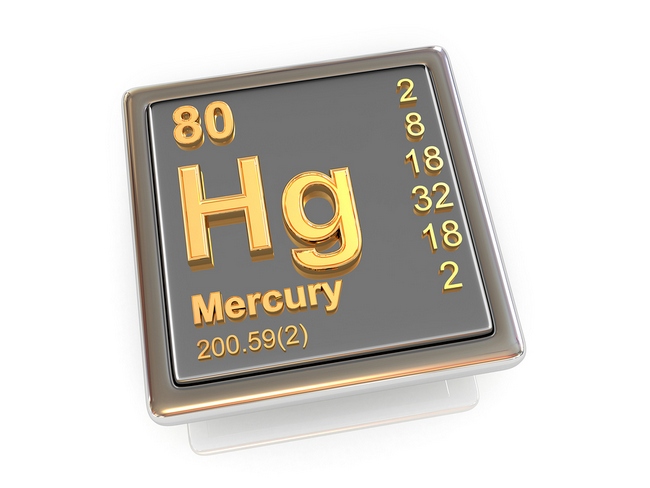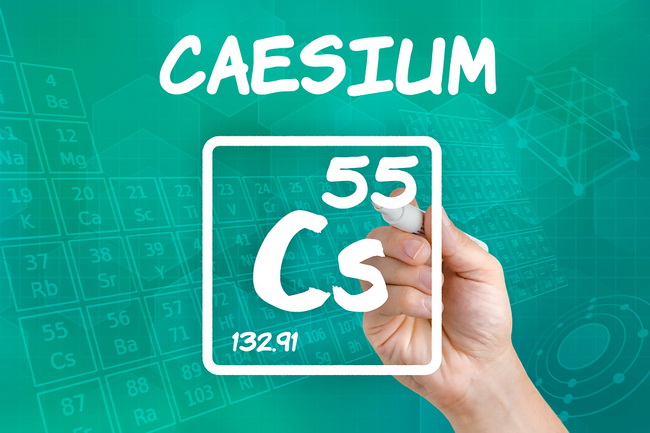- Make It Yourself Lavender Heart-Shaped Bath Bombs!
- 20 Things You Never Knew About “Down There”
- 12 Best Foods For Those Suffering From Arthritis Pain
- 12 Personal Hygiene Mistakes Almost Everyone Makes (Mom Never Told You About #4!)
- 15 Medicinal Plants And Herbs From The Cherokee People
- 12 Mind-Blowing Benefits Of Drinking Coconut Water During Pregnancy
- 12 Outstanding Winter Foods That Won’t Fatten You Up Like A Christmas Turkey
Having Mental Issues? Top Symptoms You Have Heavy Metal Toxicity

Photo credit: bigstock.com
Metals, such as lead and aluminum, are natural substances in the earth. However, man has altered this world to such as state that minerals that used to occur in miniscule amounts and pass harmlessly through the body now permeate our air, water, food, and many types of consumer goods. Known as heavy metals, these compounds affect the body negatively. Today, we are going to focus on how these heavy metals could be affecting your mental health as many of them tend to accumulate in the brain.
Heavy metals are so pervasive in our environment now that people no longer question whether they have been exposed, but rather, how high is their level of exposure! Although people who have obvious overloads of heavy metals will exhibit classic and obvious signs of poisoning, those with chronic, low-level exposure can lead to a wide variety of health problems.
Although efforts are underway to help stop, or at least curb, the heavy metals that are being dumped into the environment, the problem will take untold years to be resolved. Thousands of tons of toxic industrial waste are dumped every single year into the environment in the United States alone.
Exposure to heavy metals and their accumulation in our bodies can lead to a wide variety of mental health issues that can mimic actual psychiatric issues. This generally means that the affected person will be prescribed more toxic pharmaceutical drugs or other unnecessary treatments when all they really need is to remove these metals from the body. Unfortunately, many clinicians who deal with mental health issues are rarely trained to suspect or look for heavy metal toxicity.
Keep reading and find out if you or someone you love is experiencing symptoms of heavy metal toxicity.
1. Lead
You might think that lead used to be found only in paint and that it has most likely been eradicated by now, but you would be mistaken. Lead is extremely dangerous and can cause serious mental problems. Lead is found in contaminated water and soil, and it is used in some types of pesticides that are used on food crops, and can even be found in canned goods, especially those that come from other countries such as China.
Exposure to lead causes some of the following symptoms:
- Memory problems
- Lower IQ
- Difficulty concentrating
- Lower capacity of hearing and speech
- Learning disabilities for children
- Lethargy
- Irritability
- Headaches
- Difficulty learning or remembering
- Fatigue

Photo credit: bigstock.com
2. Aluminum
Most people think that aluminum is a harmless metal; however, our exposure levels have become quite high. Aluminum is used to line food and drink cans, inside those packaged kids drinks, soda cans, some frozen dinners, as well as our cooking pots and pans. How many times have you used aluminum foil to cook a meal? Aluminum is also used in processed foods such as cheese spreads, bakery items, and many food colorings. Is it any wonder that our exposure levels have gone through the roof? Aluminum collects in the body, especially in the brain, liver, thyroid, and lungs, and causes numerous problems, including:
- Speech problems
- Lack of concentration
- Alzheimer’s disease
- Parkinson’s disease
- Involuntary tics, especially of the face
- Confusion
- Memory loss
- General cognitive impairment

Photo credit: bigstock.com
3. Copper
Symptoms of copper toxicity that might be considered to be mental health issues include:
- Constant metallic taste in the mouth
- Detachment
- Learning problems
- PMS
- Alzheimer’s disease
- Depression
- Insomnia
- Fatigue
- Inability to focus or concentrate
- General weakness in the body
- Convulsions or unexplained seizures

Photo credit: bigstock.com
4. Mercury
Natural health practitioners have stated for years that the exposure to mercury from the vaccines given in childhood is behind ADHD. Although that has yet to be proven, mercury is a highly toxic danger that cannot be ignored. If you still have any silver colored fillings in your teeth, you should know that those are more than likely made up of about 50 percent mercury and that you are putting tiny amounts of mercury into your body every time you chew. Common symptoms of toxic mercury overload are:
- Sleep problems
- Irritability
- Coordination issues
- Tremors
- Memory problems
- Extreme mood swings
- Lack of connection or communication with others
- Delayed speech
- Reduced appetite
- Repetitive behaviors
- Difficulty with concentration
- Hyperactivity
- Lowered cognitive ability
- Hallucinations

Photo credit: bigstock.com
5. Cadmium
Although some research facilities and universities state that they can find no mental health symptoms with overexposure to cadmium, this metal is similar to other heavy metals, such as mercury. Many believe that this metal can also cause similar symptoms such as:
- Difficulty with concentration
- Fatigue
- Insomnia
- Anxiety attacks
- Irritability
- Memory loss or memory problems
- Depression

Photo credit: bigstock.com
6. Arsenic
Although this substance is also found in nature, inorganic arsenic is a real problem that can be lethal if left untreated. Exposure often happens when persons come into contact with industrial waste, contaminated drinking water (especially in well water), foods (find out what food may contain arsenic), or other types of beverages. Arsenic poisoning symptoms include:
- Night blindness
- Ongoing drowsiness
- Confusion
- Headaches
- Convulsions

Photo credit: bigstock.com
7. Cesium
Although this heavy metal is rare, which would make overexposure very difficult, it’s not impossible. Some of the mental symptoms of cesium overexposure are:
- Unexplained seizures
- Decrease or increase in activity
- Decrease in mental capacity
- Depression
- Difficulty with concentration
The best means of avoiding heavy metals are to consume a diet low in processed foods, avoid pharmaceutical drugs, even over the counter drugs, as much as possible, and consume an organic diet that is mainly plant based. You should also perform detox programs that include herbs or other types of natural substances, such as pectin, that are known to remove heavy metals from the body.
References:
































